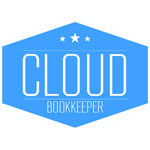Advice for freight agents about the VAT treatment of freight services post Brexit, and how to decide which country’s VAT regime should apply.
Is customer a business or consumer?
The first stage for the freight agent is to identify whether their customer is a business (B2B) or a consumer (B2C) as the rules are slightly different for each. Confirming the status of the customer should be straight forward; no rules have changed in that regard.
Business customers (B2B)
From January 2021, the place of supply of freight transport and associated services fall under the general (or default) rule. The general (default) rule is that the place of supply is where the business customer belongs.
There is an exception to the general rule; if the place of supply of services is the UK (because the customer belongs in the UK), but the services take place wholly outside of the UK, then the supply is deemed to take place where it is performed. For example, a UK freight company has a contract with a UK business to load goods in France and deliver them to Germany.
HMRC provides some further examples in their guidance in VAT Notice 744B at section 4:
- French customer – the goods move within France, place of supply is France.
- Australian customer – the goods move from Australia to the UK via France, the place of supply is Australia.
- Dutch customer – the goods move from Italy to Ireland, place of supply is the Netherlands
VAT treatment of B2B freight transport
If the place of supply of freight transport is determined to be the UK, the supply is standard rated. For example, a movement of goods from England to Scotland for a business customer in Wales
There is an exception where the supply is connected with an import into the UK or an export from the UK – in that case the supply is zero rated. Be mindful that goods moved from England to the Republic of Ireland would be an export in this post-Brexit landscape.
If the place of supply of freight transport is determined to be outside the UK, then the supply is outside the scope of UK VAT, but there may be a liability to register for VAT in the other country where the supplies are made.
Consumers (B2C)
HMRC published a useful table to explain the variations for consumers (VAT Notice 744B):
Journey |
Place of supply |
| Transport within the UK | UK |
| Transport between Northern Ireland and EU | Where the journey begins |
| All other journeys | Where transport takes place in proportion to the distance covered |
| Ancillary transport related services | Where physically performed |
When looking at transport between Northern Ireland and the EU, the place of supply is determined by where the journey begins. Transport from England to Northern Ireland would continue to be a standard rated supply (UK to UK), whereas transport from Northern Ireland to Republic of Ireland is deemed to take place where the journey beings. Remember, this is for consumers (B2C). The B2B rules for business are simpler.
Sub-contractors
It is common for a main contractor to subcontract all or part of a journey. The place of supply of subcontractors, and the place of supply of services, is based on the location of your immediate customer.
Example
A French business moves goods from Italy to the Republic of Ireland on behalf of a UK business (UK customer).
The main contractor is a French freight agent who transports the goods to England (Dover), a UK based subcontractor then moves the goods to Wales (Holyhead) and the French freight agent picks up the goods in Ireland for delivery.
In this scenario, the UK sub-contractor is contracted with the French freight agent, therefore the place of supply of the freight agent services is France, even though the journey the sub-contractor performed was entirely within the UK.
All of the above are possible scenarios, but require communicating with the freight agent so they know what instructions to follow. If the buyer is not responsible for the shipping, then the buyer needs to ensure the supplier instructs the freight agent as to what basis import VAT will be settled.
One stop shop in the future
It is clear that there are different rules for B2B and B2C.
The EU will implement new rules from 1 July 2021 called One Stop Shop (OSS) which concern the supply of services to EU consumers (B2C). Included in the list of B2C services that are subject to these rules are transport and ancillary transport-related services such as loading, unloading and handling.
One Stop Shop is optional, but indicates that when making supplies to consumers (B2C) in the EU, there may be a requirement to register for VAT in the EU member state where services are being supplied. Whilst One Stop Shop may simplify that situation for some, it is important that freight companies seek advice ahead of the implementation of these future rules.


Comments